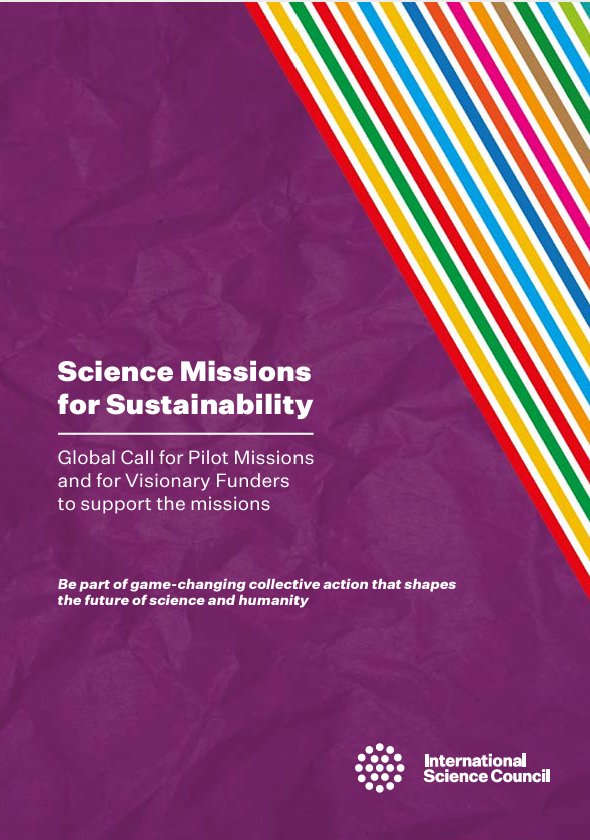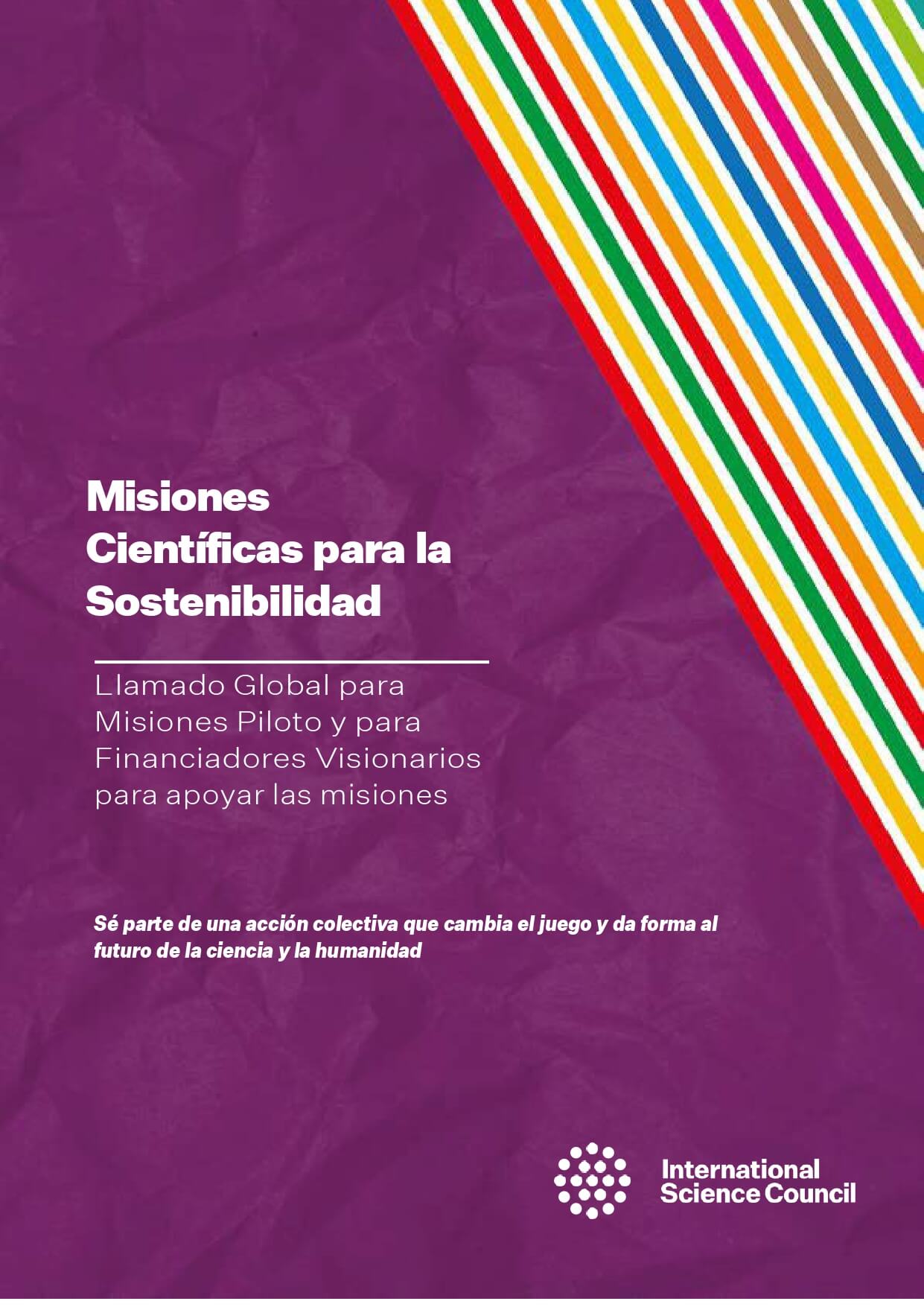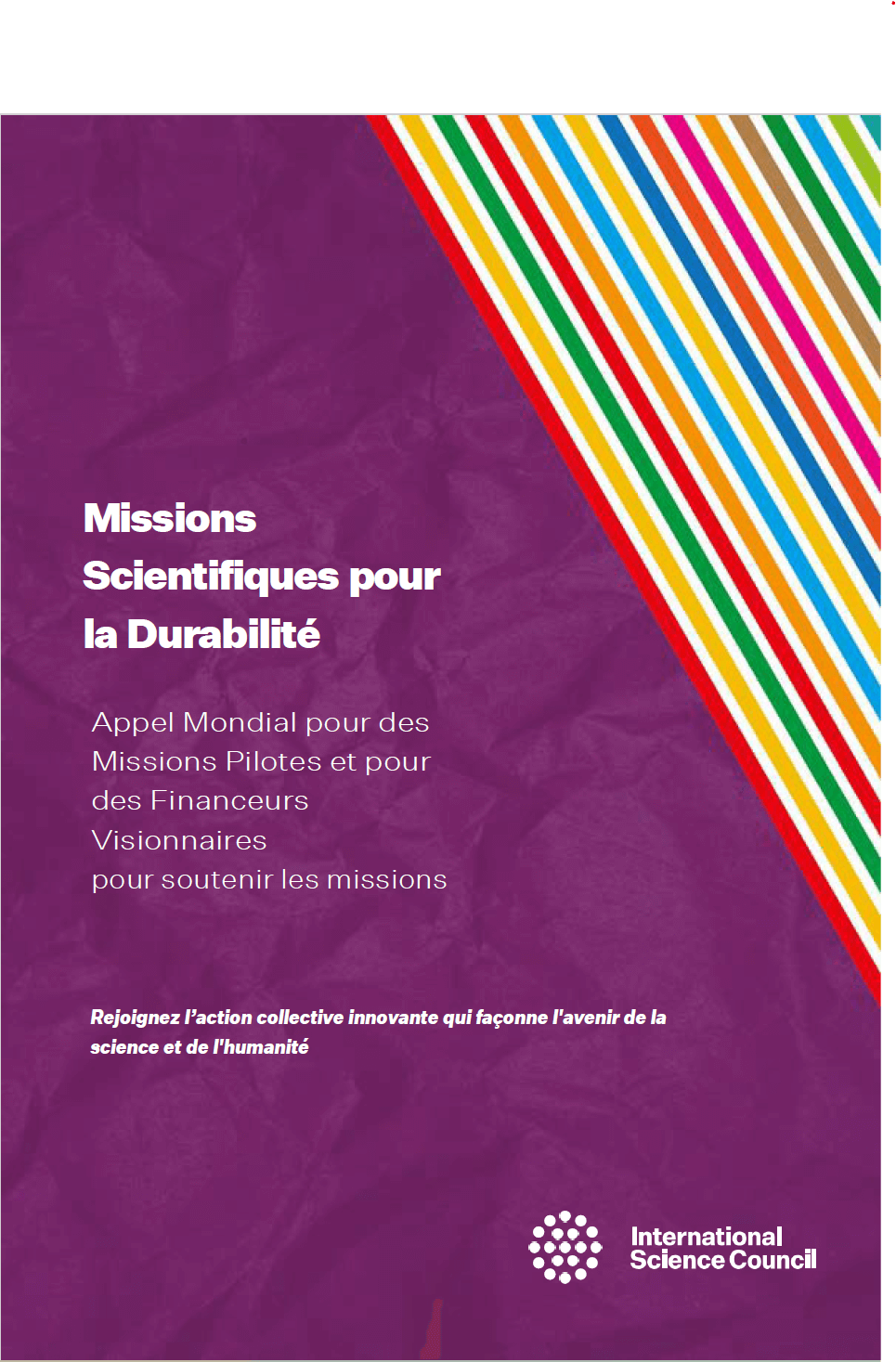We are now more than halfway through the 2030 Agenda, and as pointed out by the UN Secretary General, António Guterres, progress on the Sustainable Development Goals is not on track. We must think big, be disruptive and collectively empower science for sustainable societal transformations in the 21st century in order to achieve the ambitions of the Sustainable Agenda.
To pilot a “big science approach” to sustainability challenges, the International Science Council invites novel, innovative, collaborative consortia to co-design and embark on Science Missions for Sustainability as well as visionary funders and partners to join and support this bold collaborative effort!
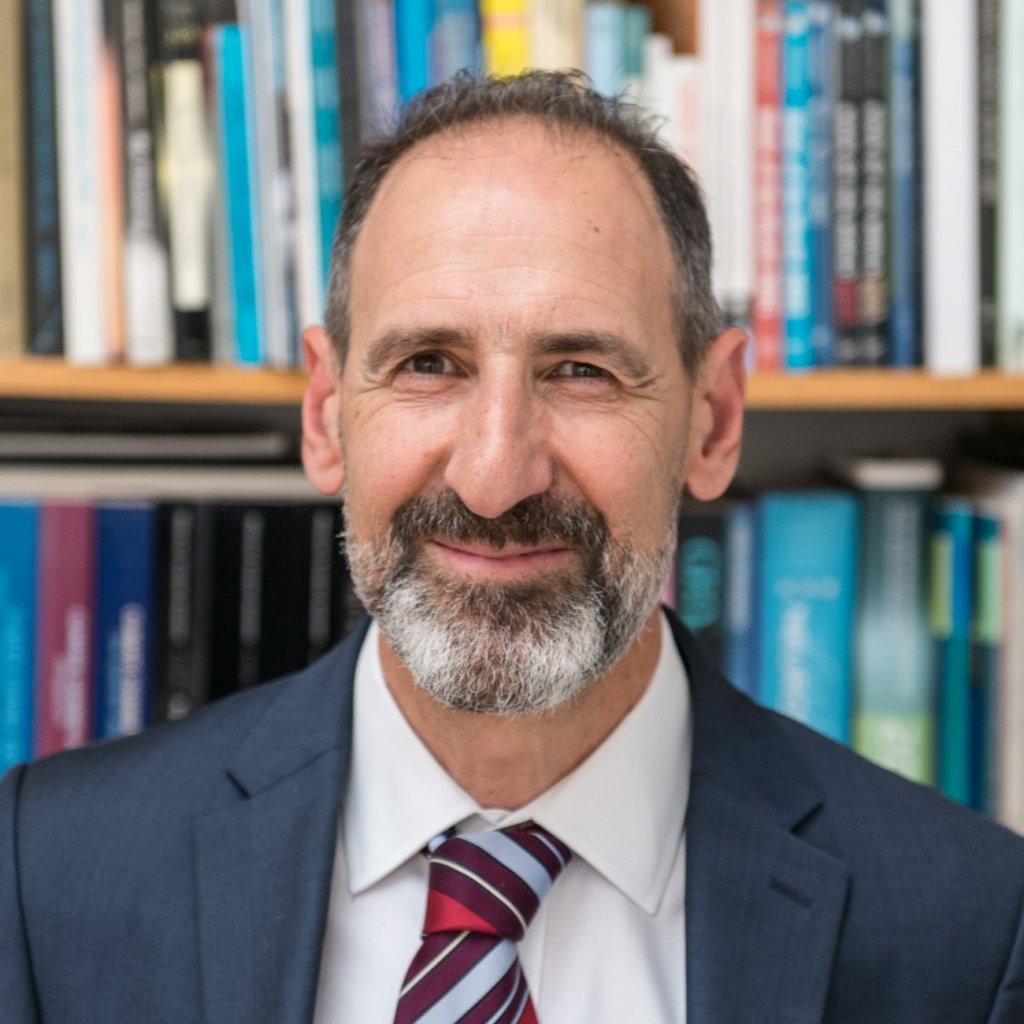
“The myriad issues stemming from unsustainable development necessitate collaboration among the scientific community, funders, policymakers, tech firms, and philanthropists. The proposed science missions for sustainability are a game-changer in the way science is implemented – translating knowledge into actionable solutions. Join this crucial initiative to make a difference and help achieve a sustainable future.”
Salvatore Aricò – Chief Executive Officer, International Science Council
Piloting the new modality of sustainability science
In the past, the global community has supported big science approaches in basic science and infrastructure, such as CERN. Now, it is the time to think with a CERN mindset to address urgent existential risks, particularly in the regions that face disproportionate burdens and impacts arising from global challenges, and where the SDG progress is lagging the most.
The Global Commission on Science Missions for Sustainability‘s groundbreaking report, unveiled at the 2023 UN High-Level Political Forum, “Flipping the Science Model: A Roadmap to Science Missions for Sustainability,” outlines this visionary model. It seeks to elevate the collaboration between science, policy, and society to new heights, tailored for our unprecedented era. The goal is to render knowledge fully actionable, integrated, and engaged, aiming for solutions that match the scale of humanity’s most critical challenges.
In the Flipping the Science Model report, the Global Commission proposes to establish a network of Science Missions for Sustainability. Each Mission will focus on mobilizing coordinated, collective science-based actions towards addressing complex sustainability challenges at the global, regional and local levels.
The ISC together with the Global Commission believes there is an urgency to pilot the new modality for science efforts, particularly as we enter the International Decade of Sciences for Sustainable Development.
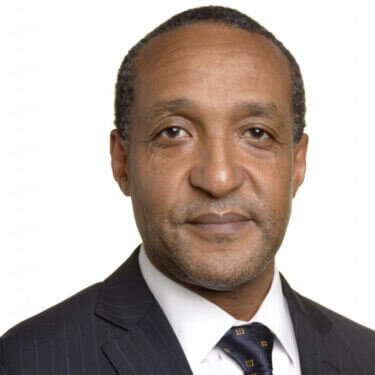
“It is widely recognized that science plays a crucial role in advancing sustainable development goals. However, the timeframe leading up to 2030 requires decisive leadership and coordinated efforts that prioritize critical areas for achieving these goals while leveraging the latest scientific advancements. The scientific missions initiated by the ISC aim to identify and swiftly implement collective actions to maximize the benefits of science within this timeframe, responding to the pressing urgency of the situation”.
Ambassador Macharia Kamau, Kenya, Chair of the Oversight Committee and member of the Global Commission on Science Missions for Sustainability
Global Call for Pilot Missions and for Visionary Funders’ support
We’re seeking novel, innovative, collaborative, and diverse consortia to co-design and embark on groundbreaking Science Missions to tackle complex sustainability challenges head-on.
This Global Call aims to select up to five Pilot Missions to test the proposed model, thoroughly examining their execution, outcomes, and impact. Successful Pilots will set the stage for adapting and expanding the model.
The selected Pilots will demonstrate the value of truly collaborative transdisciplinary efforts in helping fast-track the achievement of the SDGs and accelerating societal transformation to sustainability.
We invite novel collaborative consortia of scientists and scientific organizations, policymakers, non-governmental organizations, communities, and the private sector, working on the cutting edge of identifying solutions for complex sustainability challenges, to co-design targeted Science Missions for sustainability over an initial 18-month period. The call is open to bids for Pilot Missions worldwide, but we are strongly encouraging Pilots led by institutions located in the Global South to apply.
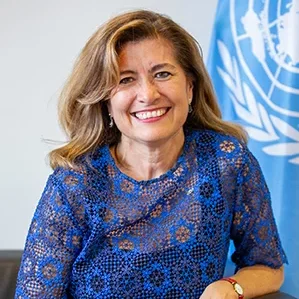
“We in the scientific community need to act courageously to tackle global challenges head-on. The ISC’s Science Missions for Sustainability is a bold and novel initiative that unites science, policy, and society for a sustainable and equitable future. As Assistant Director-General for Social and Human Sciences of UNESCO, it’s an honour to be part of this global effort!”
Gabriela Ramos – Member of the Global Call’s Oversight Committee
To implement Science Missions successfully, significant funding is needed. Collaborating strategically across funding sectors and pooling resources is crucial to maximize impact and efficiency. Early engagement of funders in the mission co-design process is critical. Initially, we aim to secure up to $250,000 per Pilot Mission the 18-month co-design phase. Following co-design, our objective is to secure full mission implementation funding.
While several funders have shown interest, no funding is currently secured. A high-level selection committee made up of eminent individuals will choose shortlisted consortia, after which matchmaking events will be organized later this year to connect shortlisted Pilots with interested funders and discuss funding needs. The goal is to launch five Pilot Missions in the first quarter of 2025, contingent on securing funding for the co-design phase.
The application process includes the submission of an expression of interest, the estimated length of which is about 2000 words, and only shortlisted expressions of interest will be invited to develop a full bid.
Learn more about the call, its scope, the application and selection processes, timeframe and financial support in the PDF document below ⬇️
The deadline for submitting an expression of interest is 31 May 00:00 UTC.
Should you want to prepare for the online submission process, you can download the expression of interest template, as Word document or as PDF. All applications must be submitted via the online form.
Q&A sessions
The ISC is organizing two virtual Q&A sessions to address questions about the call. If you are interested in applying, we highly encourage your attendance.
📅 25 April 2024
⏲️ 13:00-14:00 UTC | 15:00-16:00 CET
Global Call Q&A Session 2
📅 26 April 2024
⏲️ 07:00 – 08:00 UTC | 09:00 – 10-00 CET
Contacts
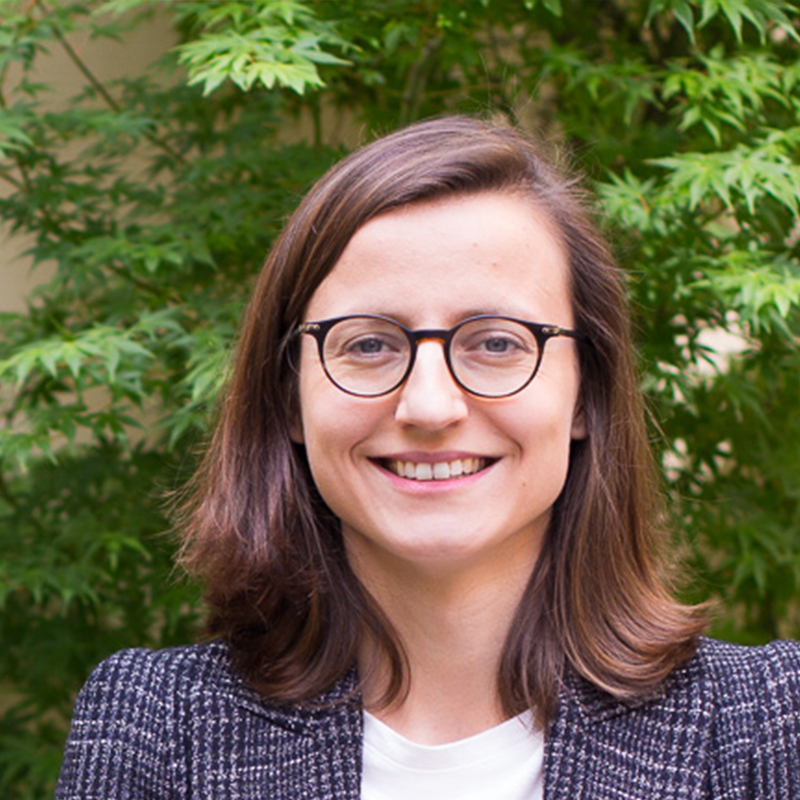
For question about the content of the call, contact Katsia Paulavets, ISC Senior Science Officer at katsia.paulavets@council.science.

